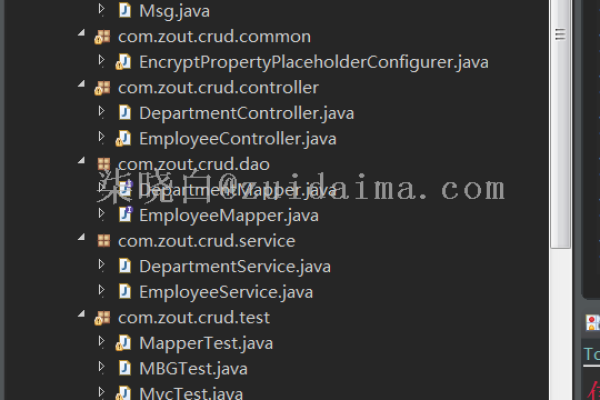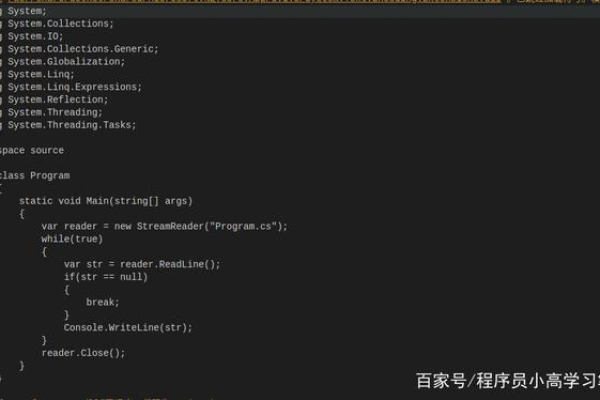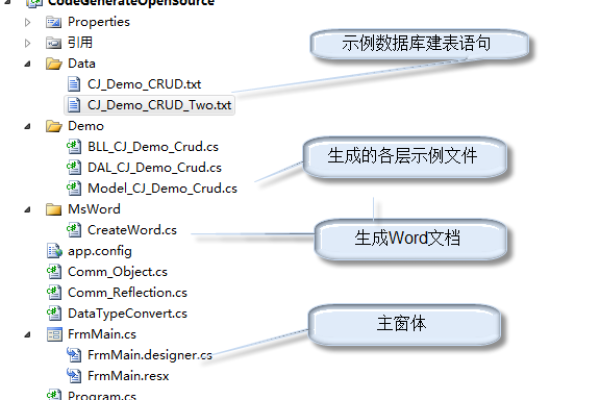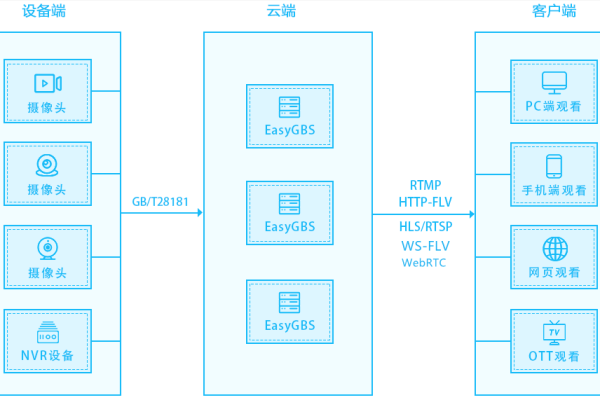c# 文件 数据库文件
- 行业动态
- 2025-02-26
- 4
.cs 后缀,数据库文件可以是 .mdf(SQL Server)或 .db(SQLite)等。
在C#中操作文件和数据库文件是常见的任务,以下是关于这方面的详细内容:
1、文件操作
创建和写入文件
使用StreamWriter类:这是最常用的写入文本文件的方式,以下代码创建了一个名为“example.txt”的文件,并向其中写入一些文本:
using (StreamWriter sw = new StreamWriter("example.txt"))
{
sw.WriteLine("Hello, World!");
sw.WriteLine("This is a test file.");
} 使用File.WriteAllText方法:该方法可以直接将字符串写入指定的文件中,如果文件不存在则创建它,示例如下:
File.WriteAllText("example2.txt", "This is some text."); 读取文件
使用StreamReader类:用于从文本文件中逐行读取文本。

using (StreamReader sr = new StreamReader("example.txt"))
{
string line;
while ((line = sr.ReadLine()) != null)
{
Console.WriteLine(line);
}
} 使用File.ReadAllText方法:可以一次性读取整个文件的内容到一个字符串中,示例如下:
string content = File.ReadAllText("example2.txt");
Console.WriteLine(content); 文件的复制、移动和删除
复制文件:可以使用File.Copy方法来复制文件,将“example.txt”复制为“copy_of_example.txt”:
File.Copy("example.txt", "copy_of_example.txt"); 移动文件:使用File.Move方法可以将文件从一个位置移动到另一个位置,将“example.txt”移动到“new_folder/example.txt”:
File.Move("example.txt", "new_folder/example.txt"); 删除文件:使用File.Delete方法可以删除指定的文件,删除“example.txt”:

File.Delete("example.txt"); 2、数据库文件操作(以SQLite为例)
引入SQLite库:首先需要在项目中添加对SQLite的支持,可以通过NuGet包管理器安装System.Data.SQLite包。
连接到数据库:创建一个SQLite连接对象,并指定数据库文件的路径,连接到一个名为“mydatabase.db”的数据库文件:
using (var connection = new SQLiteConnection("Data Source=mydatabase.db;Version=3;"))
{
connection.Open();
// 在这里执行数据库操作
} 创建表:使用SQL语句创建表,创建一个名为“Users”的表,包含“Id”、“Name”和“Age”三个字段:
using (var connection = new SQLiteConnection("Data Source=mydatabase.db;Version=3;"))
{
connection.Open();
using (var command = new SQLiteCommand("CREATE TABLE IF NOT EXISTS Users (Id INTEGER PRIMARY KEY, Name TEXT, Age INTEGER)", connection))
{
command.ExecuteNonQuery();
}
} 插入数据:向表中插入数据,向“Users”表中插入一条记录:

using (var connection = new SQLiteConnection("Data Source=mydatabase.db;Version=3;"))
{
connection.Open();
using (var command = new SQLiteCommand("INSERT INTO Users (Name, Age) VALUES (@name, @age)", connection))
{
command.Parameters.AddWithValue("@name", "John Doe");
command.Parameters.AddWithValue("@age", 30);
command.ExecuteNonQuery();
}
} 查询数据:从表中查询数据,查询“Users”表中的所有记录:
using (var connection = new SQLiteConnection("Data Source=mydatabase.db;Version=3;"))
{
connection.Open();
using (var command = new SQLiteCommand("SELECT * FROM Users", connection))
{
using (var reader = command.ExecuteReader())
{
while (reader.Read())
{
int id = reader.GetInt32(0);
string name = reader.GetString(1);
int age = reader.GetInt32(2);
Console.WriteLine($"Id: {id}, Name: {name}, Age: {age}");
}
}
}
} 更新数据:更新表中的数据,将“Users”表中Id为1的用户的年龄修改为35:
using (var connection = new SQLiteConnection("Data Source=mydatabase.db;Version=3;"))
{
connection.Open();
using (var command = new SQLiteCommand("UPDATE Users SET Age = @age WHERE Id = @id", connection))
{
command.Parameters.AddWithValue("@age", 35);
command.Parameters.AddWithValue("@id", 1);
command.ExecuteNonQuery();
}
} 删除数据:删除表中的数据,删除“Users”表中Id为1的用户:
using (var connection = new SQLiteConnection("Data Source=mydatabase.db;Version=3;"))
{
connection.Open();
using (var command = new SQLiteCommand("DELETE FROM Users WHERE Id = @id", connection))
{
command.Parameters.AddWithValue("@id", 1);
command.ExecuteNonQuery();
}
} C#提供了丰富的类和方法来操作文件和数据库文件,使得开发人员能够方便地进行数据的存储、读取和管理,无论是处理本地文件还是与数据库进行交互,都可以通过简单的代码实现各种功能。







